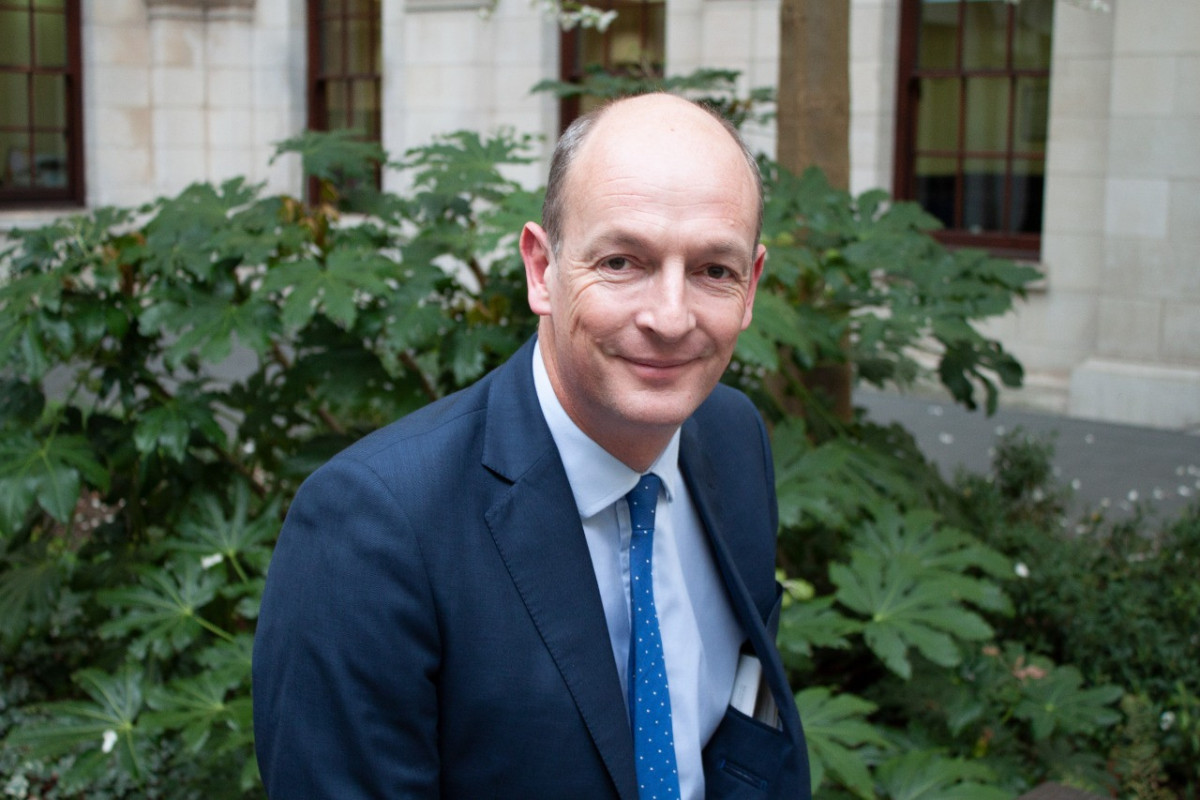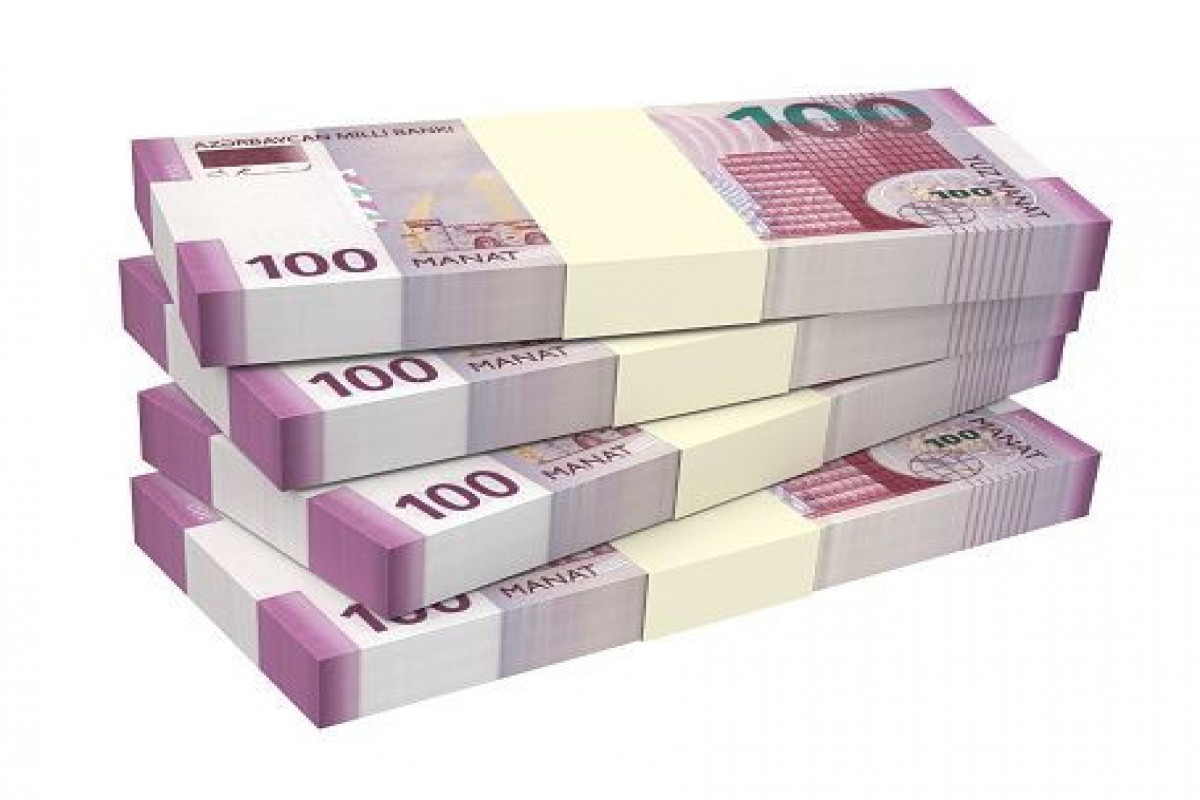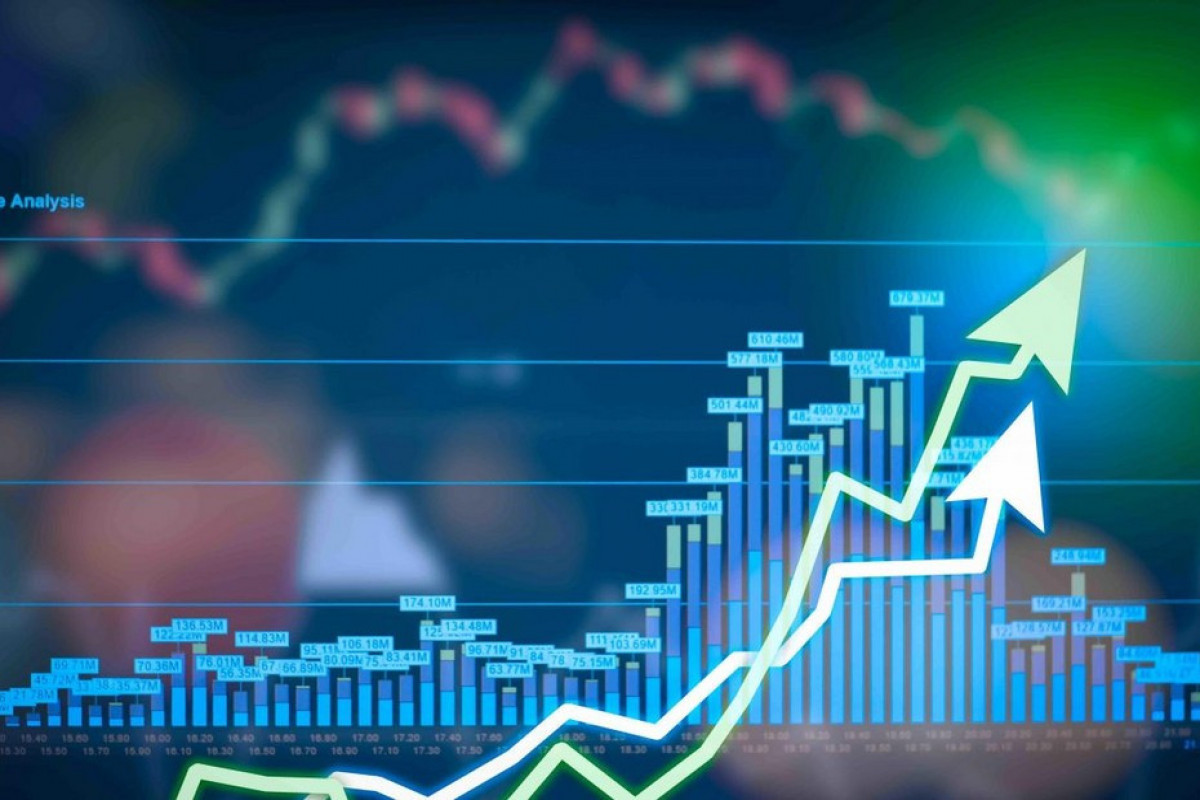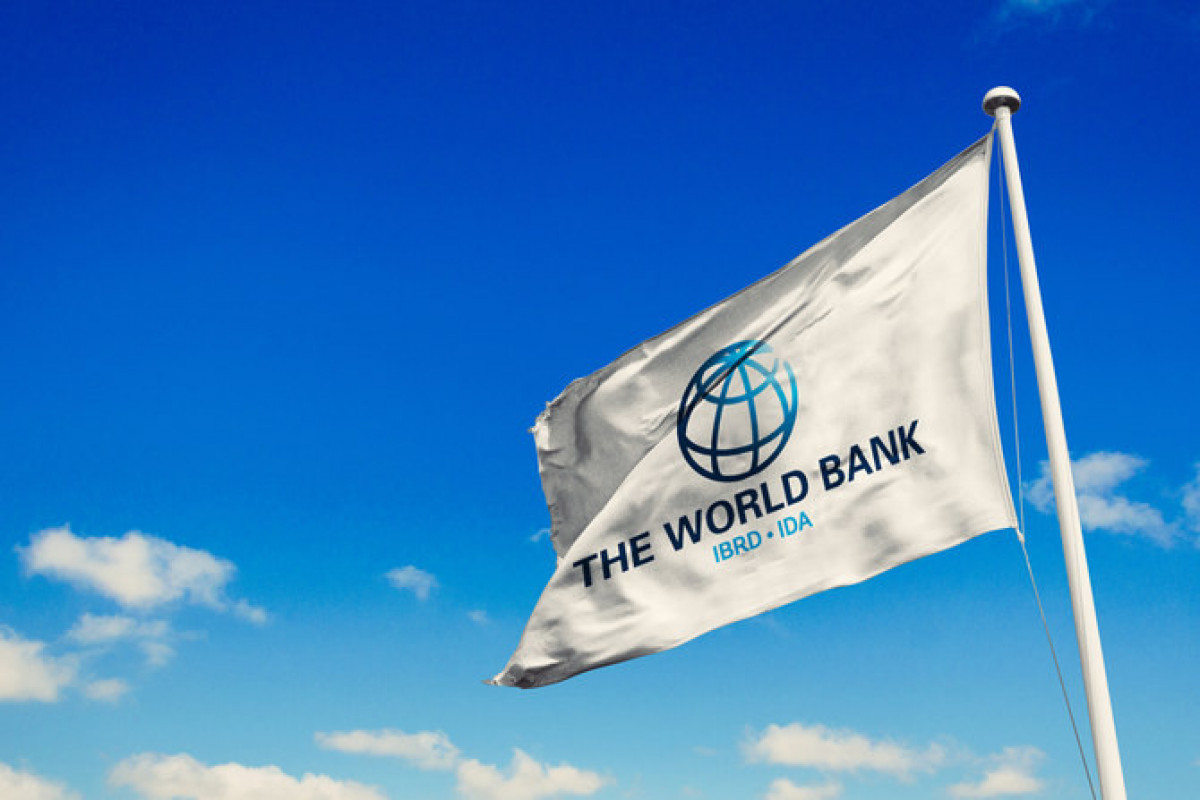EBRD Vice President for Policy and Partnerships Mark Bowman was interviewed by APA-Economics
-Mr. Bowman, what are your main expectations regarding the visit to South Caucasus countries, especially Azerbaijan? What will be the main directions of the future prospects of cooperation between the EBRD in Azerbaijan?
- It is great to be in Baku to discuss these issues with our longstanding partners in person. We are fully committed to Azerbaijan and the Caucasus and we believe that our investments combined with policy support and technical cooperation will continue to bring tangible benefits to Azerbaijan.
We know that Azerbaijan’s economy has been doing well, and one of the reasons is the current spike in energy prices. We are working with our Azerbaijani colleagues to use this window of opportunity for Azerbaijan to strengthen the country’s medium and long-term resilience.
Our current strategy here focuses on helping diversify Azerbaijan’s economy, ensuring better access to finance for small and medium-sized enterprises (SMEs), and supporting the country’s decarbonization agenda.
2022 has been a year of many firsts, both on the policy and investment sides. Last year we co-financed the first utility-scale solar power plant in Garadagh. We also signed two agreements within the framework of our flagship Green Cities program. The first agreement aims to help Ganja improve its solid waste management, whereas the second agreement aims to improve the city’s energy efficiency. In addition, we supported SMEs with logistics investments, as well as export market diversification and re-orientation.
In terms of digitalization, together with European Union, we supported the loan of up to $US 50 million to Aztelecom to bring reliable access to the internet to more than 280,000 households in the regions of Azerbaijan. We also launched IT hubs which is the first project to be funded through a bilateral donor agreement between us and the Government. Through this project, we aim to support the training of students in the regions and to help them get remote jobs with international ICT companies.
We have also had a strong start to 2023 in Azerbaijan. During my visit here we signed our first circular economy project to support an Azeri secondary lead producer to expand its end-of-lifecycle battery recycling capacity. This was also in partnership with the EU.
Looking at these achievements, I am confident that our fruitful cooperation with Azerbaijan will continue, be it in sustainable infrastructure, green finance, economic inclusion, or digitalization. We are going to carry this momentum into 2023 and beyond.
-One of the main priorities of the bank is the development of the green economy. Considering this, in 2023, the EBRD plans to allocate loans to which areas and in what volume in Azerbaijan?
- The use of fossil fuels in Azerbaijan has become more expensive and the use of renewable energy sources has become more economically viable, in addition to the environmental benefits of renewables.
Therefore, we are now actively supporting Azerbaijan's efforts to decrease carbon fuel reliance through investments and policy development. We recently co-invested in the construction of the first privately-owned solar power plant in the country, and we are also exploring the possibility of financing the construction of a wind power plant on the Absheron peninsula.
On the policy side, we have assisted the Ministry of Energy in conducting a study to improve the grid, and have signed an agreement to continue supporting the development of a low-carbon and climate-resilient power sector in Azerbaijan in line with the country's commitments under the Paris Agreement.
This includes further development of renewable energy, grid enhancements, improved energy efficiency, and the gradual introduction of new technologies such as hydrogen.
-How will the EBRD support the development of the Middle Corridor this year and in the coming years?
-International carriers are looking to diversify their transit routes, with a growing demand for transport through the Middle Corridor. The route has the potential to open new trade opportunities for the Caucasus and Central Asia, providing a viable and realistic alternative.
This will help to increase the growth potential of countries along the corridor and support the development of logistics and transport hubs in the countries it passes through, including the Caucasus.
The EBRD is actively supporting its clients in linking Central Asia to the Caucasus through various projects, such as building storage facilities, improving port infrastructure in Georgia, and investing in railways in Kazakhstan.
We are also working to help Azerbaijan increase its import, export, and transit capacity along the Middle Corridor. Recently, we provided a loan to a private logistics firm for the construction of a warehouse in the Alat Free Economic Zone near Baku port, and we have supported logistics investments for SMEs along the Middle Corridor.
Currently, we are exploring opportunities for investing in other logistics projects, including working with the EU to improve Azerbaijan's transit capacity.
-Mrs. Odile Reno-Basso held a number of meetings when she was in Baku last year. In particular, it became known that a 100 million dollar loan will be allocated to Azerbaijan Caspian Shipping Company. İntent protocol was signed in this regard. What is the current status of this issue?
-Although a mandate letter has been signed between the Bank and the ASCO, funding for the loan has not yet been allocated. Currently, due diligence and negotiations are ongoing and it is premature to determine the details of the project. That being said, we hope to be able to conclude the agreement by this summer.
-If I'm not mistaken, you also had a meeting with the Central Bank of Azerbaijan. What are your plans for cooperation?
-Yes, you are correct. During our meeting with the new Chairman of the Central Bank on Wednesday, we delved into the current economic and banking landscape in Azerbaijan, with a focus on finding ways to improve financing options for small and medium-sized enterprises (SMEs).
One of the initiatives we discussed was the potential of creating a Domestic Credit Rating Agency to assist local SMEs in acquiring credit ratings. We also offered our support to the Central Bank by providing training and additional assistance in the areas of Environmental, Social, and Governance (ESG) if needed.
We are committed to continue working towards strengthening the stability and resilience of the country's banking sector throughout 2023 and beyond.
-We know that political processes affecting the world economy, including the Russia-Ukraine war, are ongoing. How do you see the effects of the war on the world economy, including the economy of the South Caucasus and Azerbaijan this year?
-We are very active in our support to Ukraine and its real economy during this crucial time. We stand in solidarity with the people of Ukraine and strongly condemn the Russian invasion. Our President visited Kyiv in October and met with President Zelenskyy, Prime Minister Denys Shmyhal and the Mayor of Kyiv Vitali Klitschko.
As President Zelenskyy said during the visit, the immediate task is to fight the winter. We have already mobilized 1.7 billion euros for Ukraine, with an additional 200 million mobilized from our partner banks. Our focus now is on helping Ukraine navigate the next few months.
Unfortunately, we must prepare for this conflict to last for many more months. However, when the time comes, we are ready to take a leading role in the reconstruction and recovery efforts that will follow this devastating war.
As for the South Caucasus, economic growth has been higher than expected due to unexpected short-term factors including higher net inflow of money transfers from Russia, and higher than expected income generated from tourism. In case of Azerbaijan, the main reason is the current spike in energy prices.
We think that energy prices and demand for Azerbaijani gas will remain high this year, which will support the country’s overall economic performance during the 2023. This being said, however, we would like to use this window of opportunity to ensure country’s medium and long-term resilience, and to boost local production, which would benefit from more reliable supply chains and logistics solutions.







